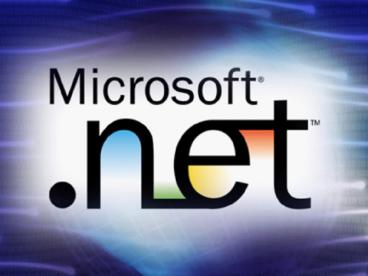GP IR .Net in Depth: Microsoft Middleware Strategy - PowerPoint PPT Presentation
1 / 32
Title:
GP IR .Net in Depth: Microsoft Middleware Strategy
Description:
Provide a robust and secure execution environment. Support multiple ... Pictures from Wrox Publishers. UPDATING A DATABASE * Picture from Wrox Publishers ... – PowerPoint PPT presentation
Number of Views:55
Avg rating:3.0/5.0
Title: GP IR .Net in Depth: Microsoft Middleware Strategy
1
(No Transcript)
2
.Net and XML
- Presented by
- Lisa Donkor
- Kristina de Don
- David Ohmann
- Teresa Butler
- Clay Turner
- David Seijo
3
Topics to be covered
- Web Services
- .Net environment
- .Net Passport
- XML Background
- XML Overview
- XSLT
4
Common Language Runtime Design Goals
- Dramatically simplify application development
- Provide a robust and secure execution environment
- Support multiple programming languages
- Simplify deployment and management
5
What are Web Services?
- Programmatic components used across the Internet
- Use standard protocols and formats(SOAP, HTTP
Get, HTTP Post) - Allow interoperability with any operating system,
platform, or programming language
6
Open Access - Any Environment
HTTP POST
SOAP Request Message
- Windows, Windows CE, Unix, Mac, Palm, etc.
- Any Language
7
(No Transcript)
8
Picture from MSDN
9
Pictures from MSDN
10
Built in intellisence
When you typethe IDE shows applicable keywords
Picture from MSDN
Picture from MSDN
11
Binding Data
DataGrids
Pictures from MSDN
12
CODE BEHIND
Picture from Wrox Publishers
13
UPDATING A DATABASE
Pictures from Wrox Publishers
14
Picture from Wrox Publishers
15
Pictures from Wrox Publishers
16
.NET Passport
- Simplifying Use of the Internet
- Single Log In Authentication Tool
- Uses EBay, Hotmail, MSN Messenger
17
Passport Features
- Single Sign In (SSI)
- Single sign in for multiple web sites
- Used to Authenticate Users
- Express Wallet
- Stores billing and shipping info
18
Passport Concerns
- Security Flaws Already Discovered by Marc Slemko
- Got all of a users information by simply having
them open a hotmail message that he sent. - Patches have been made.
19
XML Background(EXtensible Markup Language)
- Development started in 1996
- Took best parts of Standard Generalized Markup
Language (SGML) - Guided by experience of HTML
- Designers intent
- Simple enough for people to understand in its
entirety - Communicative enough to meet need for shared
context on Internet - XML 1.0 endorsed by W3C February 1998
20
XML
- For structuring data
- Not a programming language
- Makes use of tags for adding metadata and
attributes for adding shared context - Used to define data elements on Web page and B2B
documents
21
XML HTML
- HTML
- Loose coding style and tolerant of coding errors
- Defines how it looks
- Specifies what each tag and attribute means and
how often text between them will look in a browser
- XML
- Pages have to comply with rigid rules
- Defines what it is
- Uses tags only to delimit pieces of data and
leaves interpretation of data completely to
application that reads it - Allows tags to be defined by developer of page
22
Integration XML
- Bridging the old and new applications
- Common method for identifying data supports B2B
transactions - Lack of industry standards is stumbling block
- No out of the box solutions
- Businesses must determine most cost- effective
XML strategy to implement
23
XML Selling Points
- Simplicity rigid set of rules, but small set of
rules for syntax. - Extensibility allows developers to create tag
sets that are recognized on multiple
applications. - Interoperability character encoding standards
embedded into XML.
4. Openness open standard for creating XML
documents. 5. Experience requires experienced
professionals. Simon St. Laurent, 1998
24
XML Strategic Plan
- Created by XML.gov
- 1. XML Best Practices and Recommended
Standards - 2. Partnerships with Key Industry and Public
Groups Developing XML Standards and
Specifications - 3. Partnerships with Governmental Communities
of Interest to Accelerate the Deliver of XML
Benefits - 4. Results-Oriented Education and Outreach
25
Replacement of HTML
- L.C. Rees What is XML?
- 1. XML shall be straightforwardly usable over
the Internet. - 2. XML shall support a wide variety of
applications. - 3. It should be easy to write programs, which
process XML documents. - 4. XML document should be human-legible and
reasonably clear.
26
Replacement of HTML Cont.
- 5. The XML design should be prepared quickly.
- 6. The design of XML shall be formal and
concise. - 7. XML documents shall be easy to create.
- 8. Terseness in XML markup is of minimal
importance.
27
6 Steps of Successful XML Integration
- Tony Stewart (2001) Six Steps to a Successful
XML Integration Project - 1. Focus on addressing internal business
issues. - 2. Avoid the HTML trap.
- 3. Recognize that system integration is a major
undertaking.
28
6 Steps of Successful XML Integration Cont.
- 4. Decide which type of XML application(s) you
are building. - 5. Use prototypes and pilot projects to reduce
risk and build support. - 6. Dont do it alone or restrict yourself to
your own organization.
29
Extensible Stylesheets Language Transformation
(XSLT)
- XSLT are capable of taking a XML document and
transforming it to another XML document, an HTML
document or a plain text document. - The purpose of the stylesheet is facilitate the
way a XML document can be viewed or recreated,
due to the different needs of clients and
business.
30
Extensible Stylesheets Language Transformation
(XSLT)
lt?xml version"1.0" encoding"ISO-8859-1"?gt lt?xml-
stylesheet type"text/xsl" href"example5.xsl"?gt lt
cargt ltmake id Hondagt ltmake_stylegtAccordlt/ma
ke_stylegt ltmake_colorgtGraylt/make_colorgt lt/make
gt ltmotorgtV6lt/motorgt lt/cargt
31
Extensible Stylesheets Language Transformation
(XSLT)
- The XML document calls for the stylesheet
(hrefexample5.xsl) - The style sheet determines what needs to be
displayed (xsltemplate value-ofselectmake/_at_id
) - The final result is the value Honda
32
Questions?































